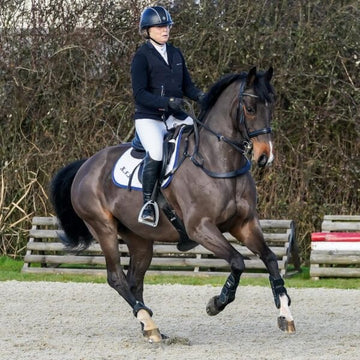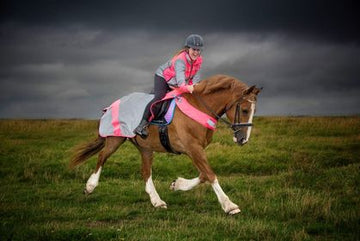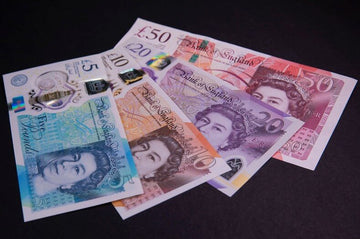Each Horse riding accident claim differs from one to another, it is, therefore, very difficult to categorise how much money the claimant could receive in compensation at the very start of the claims process. There are several influencing factors to be taken into account when our specialised solicitors work to determine the amount of compensation that should be awarded.
The main factor which must be considered as a result of the accident is the severity of the injuries sustained, but other factors will be:
- Any medical treatment and prescriptions including travel expenses
- Loss of current earnings and future earnings which could include any bonuses
- Rehabilitation and physiotherapy needs and costs
- Cost of household support
- Damage to any property incurred
- Adjustment of the home environment, e.g. stairlifts if the seriousness of the accident has made the claimant immobile
How Much Compensation Can You Expect for Being Injured While Horse Riding?
When making a Horse riding accident injury claim, calculating the compensation is not always a straightforward process. The predominant question surrounding ‘general’ damages is always based on the severity of your injuries and the impact this has or may have on your every day and future life.
As with all claims of compensation for accidents that were not your fault, the process should not be rushed in any way. All circumstances must be taken into account by our expert solicitors who specialise in horse riding accidents. Only then will we be able to value the claimant’s case accurately and specifically.
On some occasions, and more so for claimants who have fallen from a horse and sustained head, brain or spinal injuries, it is crucial to give the injured person time to recover in order to assess the injury fully before the claim is valued. We can then aim to finalise the compensation settlement value from the third party for your injury. Interim compensation payments can also be arranged to ensure a degree of financial security is in place where required.
The figures shown in the table provide provisional ‘general’ damages compensation values as set out in the Judicial College Guidelines (JCG). General damages are meant to compensate for general pain & suffering caused by the injuries sustained by the horse rider.
Horse Riding Accident Statistics
Approximately 2 million of us in the UK enjoy Horse riding as a recreational sport, and even with all the relevant safety gear and precautions considered, horses can be haphazard and unpredictable.
Horse riding is a satisfying hobby and a great way to keep fit. but, as a leisure pursuit, it is well documented to be a relatively dangerous hobby with the potential to cause a serious risk of accidental injury,
39 horse riders and around 230 horses were killed on the UK’s road network between 2010 and 2018 as a result of horse riding injuries and accidents. 5% fewer incidents in the past year compared to the previous one — 404 from 2017 to 2018, compared to 426 from 2016 to 2017. 
The Dangers of Horse Riding
Horse riding injury types range from strains and sprains, and soft tissue injuries through to serious injuries to the head, brain, or spine. According to statistics, every year there are approximately 10 fatal horse riding accidents.
While a horse-riding accident can be the result of actions or negligence on the part of the rider, they can often be caused by someone else’s actions.
We can’t stop horse riding accidents from occurring; however, we can support you in making a compensation claim for your accident with our specialist team at PSR.

What are some Common Causes of Horse Riding Injury?
Falls from a Horse
One of the most common causes of being injured while horse riding involves instances where the rider is thrown from the horse. Often a horse’s likely reaction to something that it doesn’t understand is to be frightened or shy. A spook is usually a startled sideways jump or a quick change of direction with the intention to flee.
When a horse flees from danger it may shy, bolt, or buck to unseat its rider. Being thrown in an uncontrolled way from a horse can result in broken bones and all too many of our cases involve serious injury to the head or spine, even when wearing a riding hat or helmet.
Kicks and bites
Horses kick for a number of reasons. A horse may kick at biting flies around its legs and belly or kick out even if suffering from colic. They may also kick or stamp if something like a prickly weed tickles their legs or belly. Horses also kick to defend themselves, and these kicks are often powerful and targeted.
This defensive instinct is why some horses kick when they become alarmed—such as when a person, dog, or another animal comes into view behind the horse. A horse’s feet and its teeth are its only means of defence and both can prove dangerous to an innocent bystander if caught in the wrong place at the wrong time.
Road traffic accidents
Riding on the road brings its own particular risks, and there are about 3000 road accidents involving horses each year. A range of different situations exists which lead to horse riding road traffic accidents, as is the same with any road user, but horse riders are obviously particularly vulnerable to injury.
Negligent training or oversight
A person being given a horse that is beyond their riding ability, or not being given enough training to ride a horse can cause accidents and injury. This could be caused by negligence on the part of the instructor or organiser.
Horses should be kept in specified areas and should not be allowed to roam free. If they do they can cause injuries to the public or cause road traffic accidents.
What are some Common injuries from Horse Riding Accidents?
Horse riding leg injuries
When falling from a horse, or being kicked by one, people can suffer breaks and fractures to the legs. Other common horse riding leg injuries include damage to the ligaments and other soft tissue injuries including sprains and strains.
Horse riding back injuries
Horse riding back injuries can range from the mild to the very serious, Injury types include soft tissue injuries such as sprains, strains, and general pain, damage to the discs, and conditions such as sciatica. This is when the sciatic nerve that runs from your hips to your feet, is exasperated.
Horse riding upper-body injuries
You can suffer a range of different injuries to parts of the upper body, such as the shoulders, arms, wrists, and hands. The injury types might include broken bones, elbow damage, and tendonitis.
Horse-riding injuries to the neck
When falling from a horse, people can suffer neck injuries that cause similar damage to whiplash injuries, such as soft tissue injuries to the neck as well as generalised neck pain, strains, and sprains. Neck injuries can also be extremely serious, which could result in a spinal cord injury that may lead to permanent paralysis.
Crush injuries
A horse can weigh over half a ton, and if a rider and horse were to fall together there is the risk of the horse falling or rolling onto the rider causing a potentially very serious injury. If horses are not properly controlled in stables or other restricted areas where people are moving about there is the risk of being accidentally crushed by a horse against a wall, gate, or fence.
Workplace injuries
People working with horses can be injured by the horse whilst carrying out their duties within their job. Workplace horse riding injuries can be the fault of another member of staff, your employer, or the party responsible for the horse. Those at fault could have been negligent in how they conducted their duties or could have failed to follow appropriate health and safety procedures.
Injuries can also be caused by stable equipment: Neglectful maintenance and up-keep of horse riding equipment can lead to injuries.
Written by PSR Solicitors






